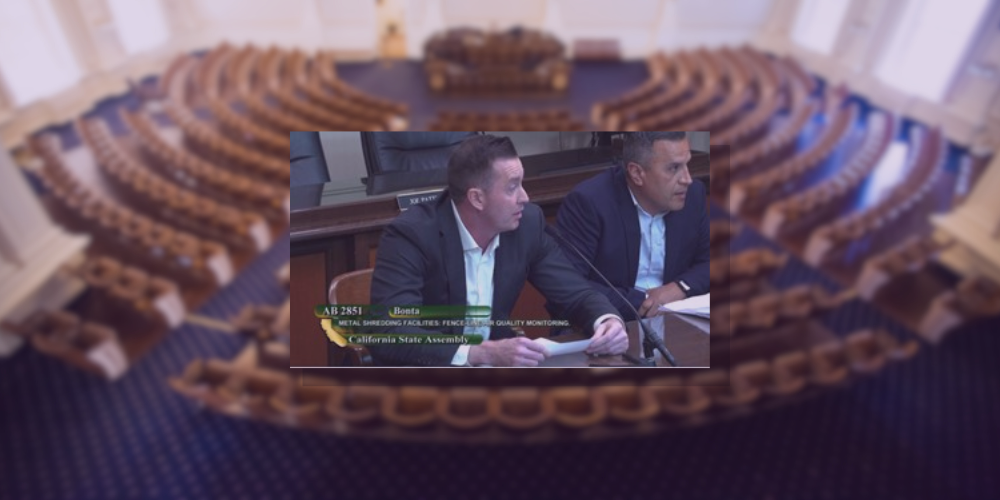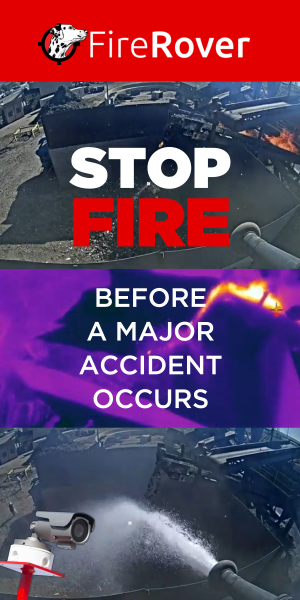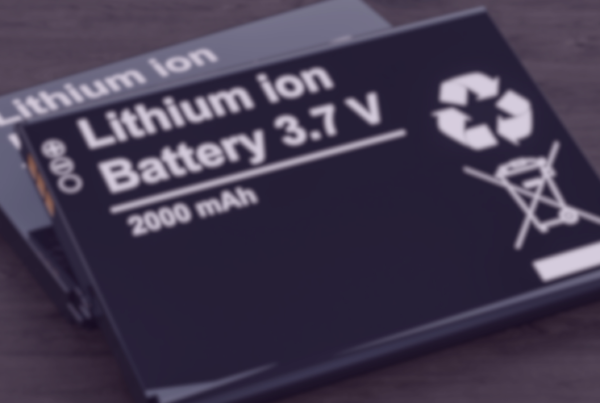In California, the West Coast Chapter continues to work on Assembly Bill 2851 that was introduced in February as a placeholder, with the full text added on March 21. This bill, as introduced, would require the Department of Toxic Substances Control (DTSC) by July 2025, to develop standards for facility-wide fence-line air quality monitoring at metal shredding facilities for specified substances. This bill would also require each local public health department to issue a community notification regarding the adverse impacts on air quality and public health as a result of the operation of metal shredding facilities in that jurisdiction and provide a biannual assessment to the local governmental entity for the jurisdiction in which the metal shredding facility is located.
This bill underwent additional amendments that effectively addressed some of the chapter’s concerns. The revisions eliminated the biannual assessment requirement and modified the community notice advisory section to apply only when monitoring indicates a potential adverse impact on air quality and public health. Additionally, the scope of consultation for DTSC was narrowed to include only the affected local pollution control and air quality management districts.
On April 23, the bill underwent a hearing in the Committee on Natural Resources, during which Chapter Lobbyist Ryan Flanigan and Tony Cuevas, Manager for SA Recycling, provided testimony. The chapter plans to oppose this bill unless it is further amended. The chapter submitted a letter on April 14 outlining potential improvements to the bill, including advocating for local air pollution control and air quality management districts to assume primary responsibility for the development and oversight of these programs. The chapter also seek amendments to ensure information be collected according to accepted scientific protocols and methodologies, and that the monitoring results be accurately interpreted according to officially promulgated ambient air quality standards and accepted thresholds pertaining to human health risk. At the hearing, the bills were reported as ‘Do pass’ with a majority of eight Ayes and two Noes, before being re-referred to the Committee on Appropriations.
Apart from this bill, the chapter is actively monitoring several other bills, including, Assembly Bill 2761 the Reducing Toxics in Packaging Act, Senate Bill 903 related to intentionally added per- and polyfluoroalkyl substances (PFAS) in products, Assembly Bill 2648 related to the purchasing of single use plastic bottles, Senate Bill 615 would establish an extended producer responsibility program for electric vehicle batteries, and Senate Bill 359 related to automobile dismantling.

Pictured: Ryan Flanigan West Coast Chapter Lobbyist and Tony Cuevas, Manager for SA Recycling.
Assembly Bill 2761 advanced from the Assembly Judiciary Committee with an 8-3 vote and is under consideration by the Assembly Appropriations Committee. Senate Bill 903 is currently under review by the Senate Appropriations Committee and is scheduled for a hearing on April 29. Furthermore, Assembly Bill 2648 received approval from the Assembly Natural Resources Committee on March 19, also with an 8-3 vote, and now rests within the Assembly Appropriations Committee, where it has been included in the Appropriations Committee suspense file. Senate Bill 615 was introduced last year and moved through the Senate as a “work in progress” and was subsequently parked in the Assembly. This bill was carried over from the 2023 session following weekly stakeholder meetings where Chapter Lobbyist Ryan Flanigan participated with car manufacturers, recyclers, dismantlers, and local environmental groups among others. Flanigan has helped provide insights during the drafting process to ensure the industry’s perspective is included and will continue to engage in the stakeholder process. This bill has until the first week of July to move out of policy committee in the Assembly. Regarding Senate Bill 359, the chapter previously supported an earlier version of this bill a few years ago, which laid the foundation for the program. The chapter will submit a letter and testify in support of this bill.
As California progresses through its legislative session, ReMA’s West Coast Chapter remains dedicated to monitoring a variety of bills through ongoing stakeholder engagement and meetings with legislators. California’s legislative process sets a crossover deadline for bills to pass their chamber of origin by Friday, May 24. The final opportunity for each chamber to approve bills is Saturday, Aug. 31.
For more information, ReMA’s State Resources and Tracking webpages have details on all the bills that ReMA tracks in each state. These pages help users stay well-informed about legislation and provide updates categorized by state or specific issue areas. Members can also access our latest bi-weekly State Update on Region and Chapter Policy Activities sent to ReMA’s Lobbyist Network. The update is compiled from submissions from our members and member-affiliated lobbyists.










